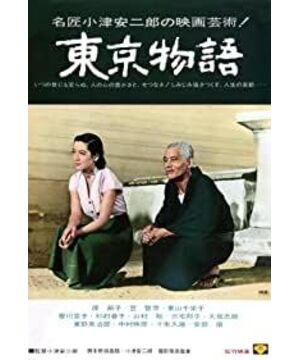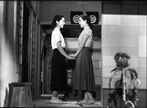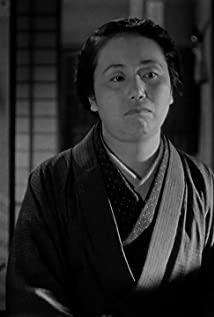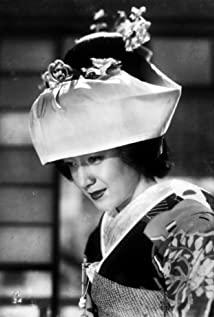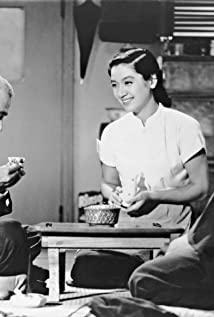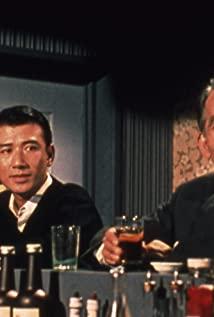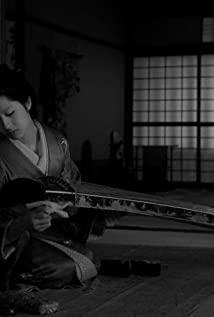//
Tokyo Story, directed by Yasujiro Ozu, a black and white film shot in 1953. Its fame had been heard, and I finally saw it when I was about to turn 30. Luckily I didn't watch it when I was younger, because it's almost certain that most young people in their 20s won't be able to watch it. This is a heavy film that tells the story of a big family coming to an end. This end is not an exciting encounter, but an ending in which the good feelings in life are consumed.
The film tells the story of an elderly couple living in the countryside of Hiroshima visiting their children who started a family in Tokyo. Although they were entertained by their children, they also encountered all kinds of embarrassment, because the children felt that their parents suddenly broke into their "busy" lives. Troubled and inconvenient to shirk, they had to reluctantly fulfill their responsibilities as children, and parents gradually felt that the intimacy between them and their children was no longer there, and only indifferent alienation remained. In the film, the lives of the Hirayama family, an elderly couple and their children who have left home reminded me of Thoreau's words in Walden: "Modern people all live in a kind of peaceful despair. "Here calm can be called busyness, while despair is another name for habit.
After arriving in Tokyo, the old couple first went to their eldest son's house. The eldest son, Xiaoyi, is a doctor of medicine and runs a private pediatric clinic in his own home. At the beginning of the film, Xiaoyong, the eldest son of Xiaoyi's rebellious period, became angry because his desk was moved to the corridor because he wanted to move his grandparents to a place. Three generations of a family reunite, grandchildren and grandparents are strangers; after dinner, Xiaoyi and his parents are in the same room and are relatively silent. All the dialogues are only two lines, Xiaoyi asks, "Mom, are you tired. Dad, do you want to go? Are you going to sleep?" The old man replied obediently, "Yes, then go to sleep."
The eldest daughter, Fan, runs a small beauty salon for a living. She is a philistine woman who speaks directly and thinks of herself first in everything. The parents who couldn't always live in the eldest son's house then occupied the second floor of Ah Fan's house, making her feel uncomfortable, and she didn't have time to take her parents out, so she thought of asking her sister-in-law Noriko to take time off to accompany her parents for sightseeing, and then she thought about it. I came up with the idea of sending my parents to a hot spring hotel in Atami to spend some money each.
In addition to his son and daughter, the only relative of the second elder in Tokyo is Noriko. Noriko is the widow of the late second son, Changji, and is a very important character in the movie. Changci has been dead for 8 years, and Noriko has not remarried, and treats her in-laws as kindly as her parents. I took leave to take them sightseeing in the downtown area, and entertained the second old man back to her small apartment for dinner. Although the food was takeout, the wine and drinking utensils were borrowed from the neighbors, but it was the warmest scene in the whole movie. .
For several days in Tokyo, the old couple kept saying to their children: "Thank you, thank you, thank you for taking care of me, it's okay, it doesn't matter...", in a polite and cautious tone that was almost to a stranger. "Xiaoyi was not like this before. Ah Fan was also a kind child when he was a child." The changes in their children made them feel distressed, but they could only comfort themselves: "Be content, we are already very happy." Yes, the children are not Not bad, and not driving them home to put them on the streets, but are they really happy with their Tokyo trip? No, of course not. There are several desolate plots and many details in the film, which seem to be just a passing narration of the development of the story, but the unspeakable embarrassment remains.
In the hot spring hotel in Atami, the second old man was kept awake at night by the noise of the guests who were engaged in entertainment activities in other rooms.
After returning from Atami and learning that they couldn't live in Afan's house, the next scene was the couple sitting quietly outdoors in an unknown place (later known to be Ueno Park), the old man asked, it was almost time for Noriko to get off work, Can you go over to her? The old mother said it was still a little early.
The mother went to Noriko's house, and the father decided to visit his old friend Hattori who lived in Tokyo and spend the night there. After the meeting, Hattori said that another old acquaintance, Numata, was also in Tokyo, so the three of them made an appointment for a meal and a drink, and chatted about their children. Now, the only old father who is not drunk has to deal with the "futures" of these two old buddies. It is better to drink some more wine. In the end, the police sent the two bad old men back to Ah Fan's house. Naturally, they were invited. A disgust.
In Tokyo, the embarrassment of "nowhere is a place to live" accumulates little by little, and finally breaks down a balance built by understanding, tolerance, helplessness, and self-comfort, leading to a major turning point in the death of my mother. . What's even more ironic is that before receiving the telegram that "mother is critically ill", Koichi and Afan were still discussing, "Mom and dad are having a good time in Tokyo this time, and they also went to Atami for sightseeing, yes, that's it. The experience is enough for them to go back and talk about it for a few days."
The old couple also has a third son, Jingsan, in Osaka. There are only three scenes in the film that directly portray this son, but it is the one that amazes me the most with the director's skill. place.
At the first place, where Keizan worked, he and his colleagues chatted about his parents' mother feeling unwell on the way back from Tokyo, and got off the bus in Osaka halfway. "Yesterday was really miserable. I had to borrow bedding again, and asked the doctor twice. It was really depressing." His colleague reminded him to be filial to his parents while they were alive. That's right, it's useless to take the quilt to the grave."
The second place, at the ceremony venue of the mother's funeral, Jingsan ran out, and Noriko asked him what was wrong, and he replied, "I can't stand the sound of that wooden fish. , I feel that my mother is getting away with the voice. My mother should not die now." After a while, he repeated the sentence: "I have not done my filial piety. It is useless to take the quilt to the grave."
Third At the luncheon after the funeral, the eldest brother and the eldest sister were discussing when to return to Tokyo, and asked, Jingsan, are you in a hurry? He replied yes, but after Big Brother and Big Sister decided to leave tonight, he immediately said, "Then I'll go back tonight too. The business trip report has not been written yet, and there is a baseball game to attend..." At this moment, the continuation The calm atmosphere of the whole film magnifies the guilty conscience in the words, and the words are like an awl stuck in the hearts of the audience. With a bitter face, he regretted his unfilial son, and finally fled back to his own life with his tail between his legs. Maybe he couldn't accept his mother's death for a while, but for his father who was still alive, Jing San still chose to be numb and choose to escape. , that indifference has become so ingrained?
Ozu's lens language is always calm. The film uses a lot of composition, the camera is at one end of the room, quietly observing the people in the room.
The old couple Hirayama has been appearing in the camera with this attitude:
The scene of the mother dying. This is probably the last reunion of the Hirayama family:
In the conversations that came and went, the actors were basically asked to speak directly to the camera. The expressions of the actors changed very little, and the lines were slow and even a little rigid.
Under such a lens, everyone appears real and unreal.
At the end of the film, a conversation between the youngest daughters Kyoko and Noriko, contrary to the forbearance of the whole film, directly raised a fierce question about the disintegrating family relationship.
After learning that Kiko was going back to Tokyo in the afternoon, Kyoko couldn't help but feel resentful, and said, "How can there be such children in the world, my mother has just been buried, she wants this and that, and she came back and said a bunch of false Dakong words. Just slap the butt and leave, it's not as good as an outsider like you. I really feel sorry for the dead mother."
"Kingzi, you are still young, and children are like this. After you get married and start a business, you will focus on your own life, everyone. They are indeed very busy."
"But I will never let myself become like that. Sister Noriko, are you like that too? Will you become like that too?"
"Yes. Yes. Although I don't want to, But I will become like that in the end."
"My own children are not as good as you, an outsider" is the most straightforward sentence in the entire film. From the mouth of the old father who became alone, and from the mouth of the youngest daughter, Jingzi, he said it twice in total. Why did Noriko say that she would become such an indifferent person? I think Ozu is somewhat conveying his pessimism here.
This is the first time I watched Yasujiro Ozu's film, and I felt Ozu's control over the camera very strongly. He should have created a unique "beauty" of Japanese culture. Like washing, it is meticulous, and the plot and characters are portrayed like a line drawing. No decoration is added to the ups and downs. What runs through is a kind of almost calm observation, and it is this kind of calm that gives weight to sadness. "Tokyo Story" is very direct in the torture of human nature and family ethics, and whether it conveys the ultimate pessimism, maybe it is, but I prefer not to think so, and "never let myself become that" .
PS
I came back to watch Ozu's "Tokyo Story" after watching "Tokyo Family", director Yoji Yamada's tribute to Yasujiro Ozu's "Tokyo Story". Yoji Yamada moved the stage to modern Tokyo, and the plot has been changed, but the spirit of the film has not been lost, which once again confirms the insensitivity of the family problems that "Tokyo Story" refers to can still beat us after half a century.
The actors in "Tokyo Family" are very good. The role of the father is Hashizugong, and the mother Yoshiyuki Kazuko, Nishimura Masahiko, his wife and wife Mu Satoshi, and Aoi Yu are all big names, and their acting skills are also top-notch. It is recommended to watch.
//
Supplementary notes:
1. I discussed this film review with the teacher who taught film and television aesthetics in the university. The teacher expressed a different understanding of the film's theme: the idyllic family is lost in the hustle and bustle of the city, or To say that getting lost is a bit suspicious of value judgments. This is the true face of social development. The city has a process of reshaping the traditional family relationship for nostalgia.
2. It was originally published on his own official account: mskaoni is still relatively personal, and is trying to write more.
View more about Tokyo Story reviews


